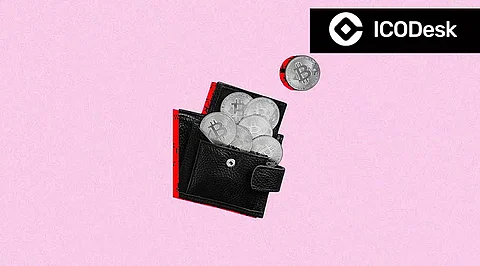

The landscape for cryptocurrency storage in 2025 demands a balancing act between security and usability. With over US$5 trillion in crypto assets worldwide, choosing the right wallet becomes even more crucial. This guide outlines the best hardware and software solutions to help safeguard investors' wealth from complex threats while allowing easy access.
Why it's the best: Ledger continues to set the benchmark for hardware wallets, with certified secure element chips and no verified security breaches since its inception in 2014.
Nano X supports mobile use via Bluetooth, while S Plus provides an economical counterpart. Both support 5,500+ cryptocurrencies through Ledger Live, ensuring the highest level of military-grade encryption. A physical confirmation button protects assets by not allowing transactions without confirmation.
Pros: Certified security chips, massive coin support, established reputation, regular updates, intuitive interface.
Cons: Premium pricing, Bluetooth has potential attack vectors, proprietary firmware, and limited staking options.
Why it's great: Fully open-source firmware safeguards Trezor against outside attackers and is regularly reviewed by security researchers, ensuring amazing trust for privacy-driven users.
Model T verifies transactions on a color touchscreen; Model One, the cheaper alternative, operates just on PIN protection with recovery seeds and an optional passphrase. The WebUSB interface connects directly to the browser and does not require any other intermediary software. The firmware is updated frequently to negate new threats.
Pros: Open-source firmware, easy to use, well-established security reputation, no reliance on proprietary software.
Cons: Does not support Bluetooth; supports fewer coins than Ledger; slightly bulkier.
Why it's great: Offering maximum security at mid-range pricing, KeepKey has the largest display on the market for transaction verification.
Its anodized aluminum case can withstand any physical abuse. The integration with ShapeShift allows for direct trades without getting exchanges involved and supports 40-plus cryptocurrencies, including all major coins. It features custom transaction fees, clear address verification, and picture verification, along with PIN protection with unlimited recovery options.
Pros: Massive value for money, premium build quality, large front-end display, integration with ShapeShift.
Cons: Less supported coins, not updated as frequently, bulkier than competitors, limited mobile support.
Why it's the best: Exodus has a visually appealing and beginner-friendly interface while maintaining features that will also satisfy experienced users.
The built-in exchange allows conversion between 200+ assets without needing an external exchange. Desktop and mobile applications provide auto-sync functionality for seamless support across devices. Private keys are stored offline on the device with end-to-end encryption. The wallet can be restored using a 12-word recovery phrase in case the device is lost. Active online customer support has resolved issues within hours.
Pros: Beautiful interface, built-in exchange, multi-platform support, excellent for the beginner, quick response.
Cons: It's closed-source, so there are higher exchange fees, limited features for advanced users, and no integration with the hardware directly.
Why it's great: MetaMask is the ultimate entry point to decentralized finance, NFTs, and Web3 applications for active traders.
The browser extension and mobile application support Ethereum and all ERC-20 tokens. Customization of gas fees can reduce transaction costs. The multiple account feature can segregate investments based on the purpose. The built-in token swaps offer good prices. All hardware wallets can therefore work with MetaMask too.
Pros: Access to the DeFi ecosystem, and Web3 connectivity, multiple accounts, and hardware wallet integration.
Cons: Mainly Ethereum-focused, it has become a target for phishing; complex for newbies; slow during network congestion.
Why it's great: Trust Wallet offers the ultimate mobile experience with native support to multiple blockchains and integrating seamlessly into the Binance ecosystem.
Its clean interface hides complexity while providing powerful features. An integrated Web3 browser allows direct connection to DApps. Trust Wallet supports Bitcoin and Ethereum as well as hundreds of altcoins. With decentralized architecture, private keys are stored exclusively in the device. Staking for passive income is another perk of the app.
Pros: Mobile-first interface, multi-chain support, Binance integration, built-in DApp browser, staking support.
Cons: Limited desktop experience, updates are buggy at times, moderate learning curve, fewer advanced features.
Criteria for selection include security requirements, frequency of transactions, asset variety, and technical level of comfort. Hardware wallets remain a must-have for large holdings, while software ones provide convenience for active trading. In this case, the tiered approach could be considered. Hardware for long-term storage and software for day-to-day transactions.
Selecting the best crypto wallet for your needs in 2025 means balancing security against usability. Hardware devices provide maximum security for substantial investments, while software solutions provide accessibility for frequent transactions. Consider implementing multiple wallet types based on your specific needs, trading patterns, and security priorities.